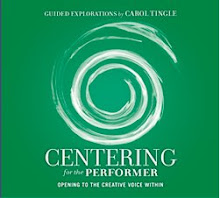Why Is It Helpful To Take Voice Lessons?
People take voice lessons for many, many reasons. (This is in itself another major thesis!) With a teacher skilled in the art of coaching the very foundation of “vocal technique,” a singer learns first and foremost – how to “produce” sound in a healthy and efficient way. Ideally, the healthy production of sound can be “translated” and used in the style of music the singer chooses to sing.
Since we can “imitate” even the most elaborate of sounds we hear performed from our CD’s, few novices have the slightest idea just what has gone into the training for the performer to be able to produce that sound on a consistent basis. As hard as it might be for the untrained, there is truly as much to learn about singing as there is to playing the piano, or any other instrument for that matter. When students have worked we me for a period of time, I often say something like: “I never run out of techniques to share,” regardless of how long that person has been studying. For, new music ALWAYS brings new challenges to technical skills.
Here is a short “stab” at thoughts about the training needed in different styles of music:
Classical Singers – study for a lifetime. They must be able to produce sound that, without the help of a microphone, penetrates through a large orchestra soaring into massive size concert halls and opera houses. Beyond this acoustical necessity comes the study of languages, repertoire, nuance, and much, much more. Most classical singers have studied for at least 10-15 years before performing in a professional opera. It takes all those years (and even more!) to master the consistency needed for proper breath technique, open throat, clear and focused sound, coordination of all these elements etc., incorporated into the challenging repertoire that they must perform. All with utmost beauty and consistency!
Musical Theater Singers – also continue their study for many of the same reasons as a classical singer. A professional must perform 8 shows a week on Broadway or performing in tours all over the country. It is not easy the keep the voice vital and healthy – and technique is critical if this is to be possible. The underlying fundamentals of “classical technique” are important in this accomplishment. However, the musical singer must be versatile and able to sing in many, many styles – for this is the demand of today’s productions. Being able to isolate the particular fundamentals that support each “style” and yet remain “true” to the style of music is a necessity.
Rock Singers – benefit from technical training as well. In many ways, the demand that they place on their voice is more challenging than any other. And, each “Rock Singer” must first and foremost remain true to their style. When I begin working with a rock singer, professional or not, I usually begin by saying that there will be a healthy way of getting the “sound” you want – we’ll keep exploring until we find it. And, I never rest until I do.
Singer/Songwriters – are a very unique group of people. Remaining true to their own “voice” is often the most statement made by this group of people. As I begin to introduce the most basic necessities of vocal technique, I am acutely aware of how each singer views their own sound, their own voice. Once I begin working with the actual music each performs, my focus is finding a healthy and safe way to maintain the desired vocal style while striving to find the technique that supports it.
Young Singers – are a group of singers that are as varied as all of the groups I have described thus far. Each is interested in singing the music for which they find their greatest passion. For the youngest singers who approach lessons, I usually suggest they become involved in musical theater production groups, choirs, etc., where they can just sing and enjoy what they are doing. By the time some reach middle school, there are often challenging demands for which voice lessons are a great benefit. When I do agree to teach a young person, it is important for me to understand just where in the development process that particular voice has come – and with that information I proceed with appropriate training, always allowing the “voice to guide the way.” Many young singers are already pursuing classical music; they benefit greatly from the basic concepts of vocal technique appropriate to their development. Certainly those performing musical theater benefit tremendously from early training, for the current trend toward constant “belting” has produced nodules in a great number of young singers. The same is true for singers interested in performing pop and rock. Always, always – the natural development of the voice guides the appropriate training and technique.

Wonderful insight. I hadn't considered all the major facets of the intricacy of singing. The comparison to musical instrument training is brilliant. We take for granted something that is seemingly inherent to us, our voice, yet I see through your thoughts just how complex the shaping of the sounds we make in contemporary and classical singing demands focused, intuitive and rigorous training. Thank you for sharing your conceptual approaches in the different modes of singing.
ReplyDelete